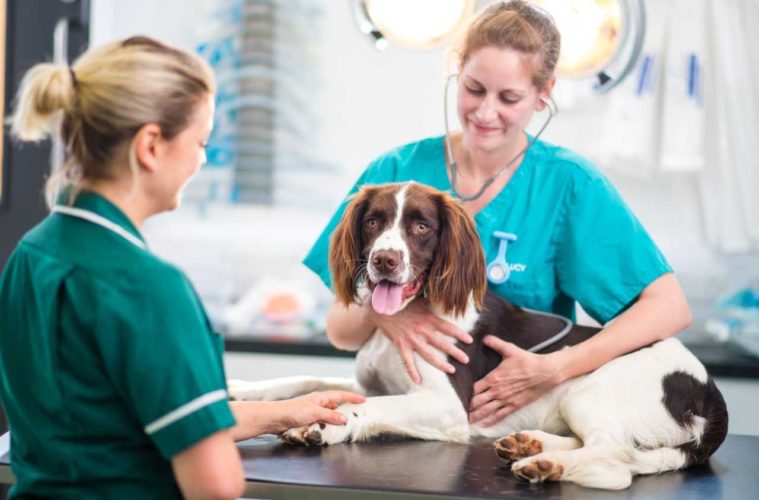Catherine Jewkes MRCVS from Bath Vets suggests some great ways your pets happy and healthy in the summer heat
The biggest problem people have is judging when it is too hot for their pets. Our companion animals cannot sweat and therefore feel hotter than we do at the same temperatures and are far more susceptible to heat stroke.
There are some who can stand higher temperatures for short periods of time, lizards, snakes and tortoises for example, but even they will eventually die from overheating. Short-faced pets (e.g. Bulldogs and Persians) are extremely vulnerable as they already cannot breathe as well in normal conditions. Imagine that you are always wearing thick, long sleeves and trousers, and you will get some feel for how warm weather affects your pet.
The signs of heat stress are more obvious in dogs than other pets – excessive panting when not exercising, unwillingness to exercise, increased drinking (compensating for water loss in panting) and, if extreme, coma and death. In other pets these signs are much more subtle – cats will not pant until they are extremely hot, while rabbits and guinea pigs cannot do it at all and will just seem very sleepy.

The best thing to do is avoid your pets becoming overheated in the first place. The actions are simple but need planning
At home
– Provide cool spaces (remember some pets will not share spaces with each other.
– Cages may need to move into rooms without direct sunlight).
– Increase ventilation by opening windows and using fans (if you have indoor cats or adventurous dogs, remember to fit good window screens or make sure that windows cannot be opened far enough to let them out).
– Provide shade outdoors (remember that the sun moves during the day and shade is not always in the same place).
– Provide plenty of water and consider iced water (they will drink more than normal and water will evaporate more so keep topping up).
If out with your dog, then remember
– Take plenty of water.
– Avoid exercising in the hottest parts of the day (if in doubt, then walk only at night, or not at all if brachycephalic).
– In the car, keep air con on or take frequent breaks in the shade – do not leave your dog inside the car with no air con as it gets hot quickly, even with windows open.
– Consider clipping fur short where possible (especially on the belly).
– Investing in cool mats or ice jackets, and paddling pools (for dogs who like to play in the water).
If your animal gets heat stroke, it is important to take immediate steps to cool them down.
– Move them into the shade
– Pour cool (not cold) water over the pet or use wet towels.
– Get them to drink and use a fan if available.
– Call or drive to your nearest vet STRAIGHT AWAY (research this beforehand if on holiday).
It is possible for pets to die very quickly from heat stroke so try to never let them get in this state, and it is also possible to die from over-cooling so please always seek veterinary advice.


